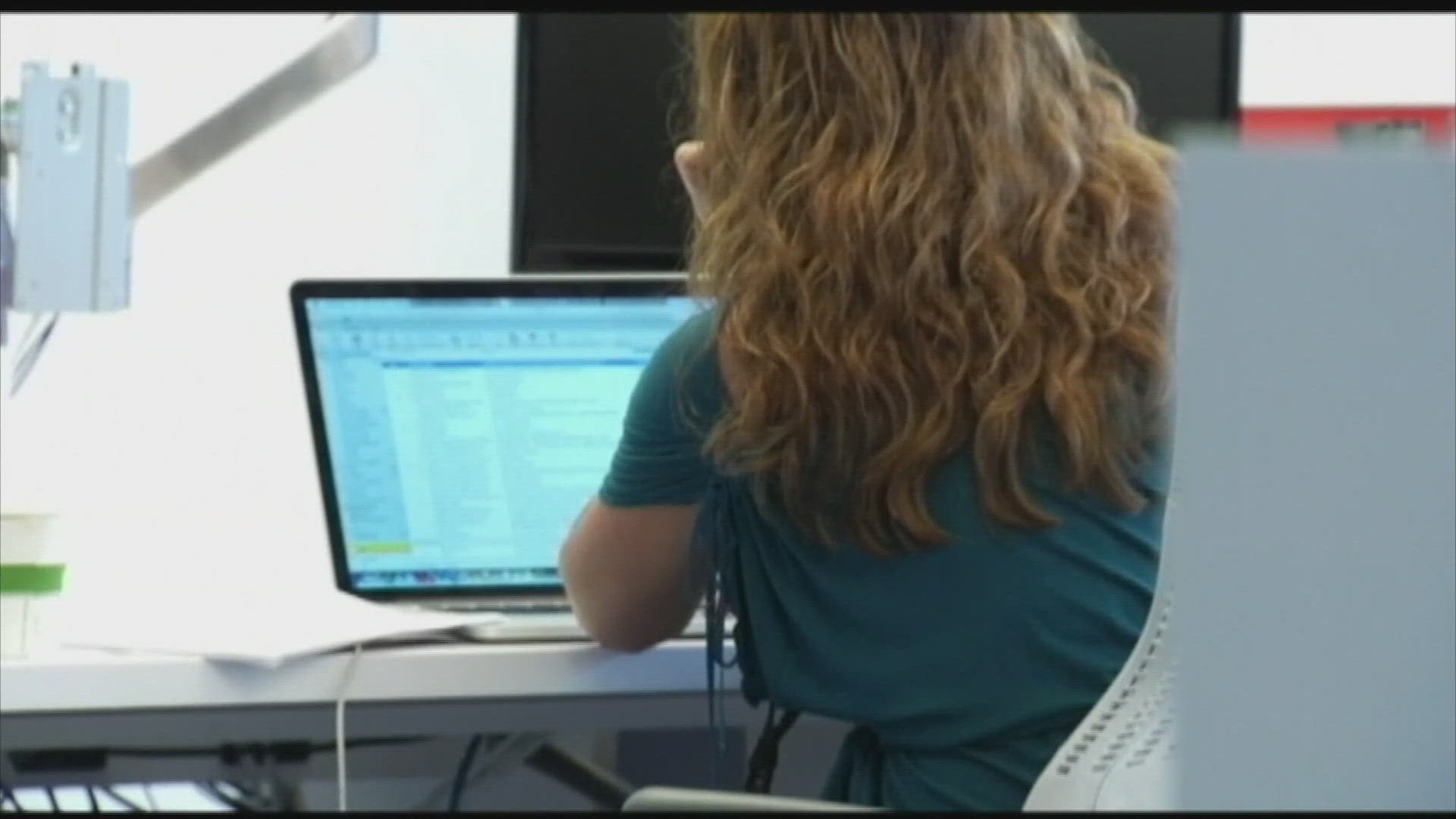ATLANTA — A new survey shows a large gap between men and women struggling to pay their bills.
VARO Bank, Morning Consult and THRIVE Financial Empowerment Service talked to roughly 1,000 people who are living paycheck to paycheck. Of those, 59% were women and 41% were men.
"Unfortunately, it's not too surprising," Emory University Goizueta Business School associate professor Melissa Williams said. "We know that that economic resources are something women struggle with more than men do, that money is not distributed equally across across the genders."
She said there are a number of reasons that women fall behind their male counterparts financially.
"Men and women major in different things. They choose different jobs for reasons both internal and external and those jobs are not paid the same," Williams said. "We also see differences within organizations in terms of who is seen as eligible for promotion, how raises are distributed, bonuses are distributed and so on."
Williams teaches her students about gender inequalities and encourages them to have conversations about the topic before getting married or starting a family.
"These are men and women who support gender equality for the most part, and yet their lives don't always end up reflecting that," she said. "That ends up being exacerbated even more with the arrival of a child if they choose to have children. "
Ashlie James, founder and executive director of Atlanta GLOW, said her nonprofit works with young women ages 14-25 to teach them about financial literacy and workforce readiness.
"All of those programs work together to empower and equip them with the skills that they need so that they can they can climb sort of the economic ladder and can combat some of those those statistics and rates that you're seeing," James said. "For us to be able to sort of level that field or at least make some type of change or progress in it, we've got to empower those communities. We've got to give them opportunities to thrive and then to climb to higher levels."

